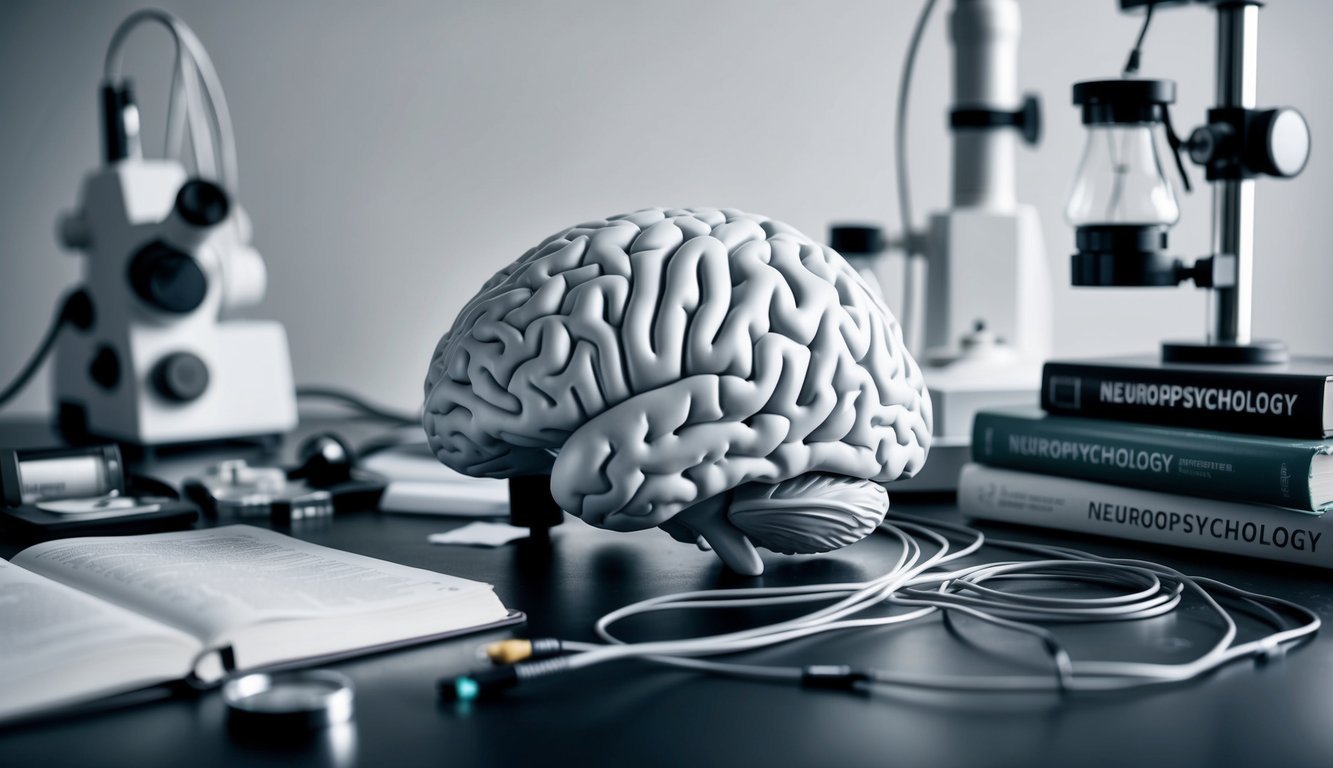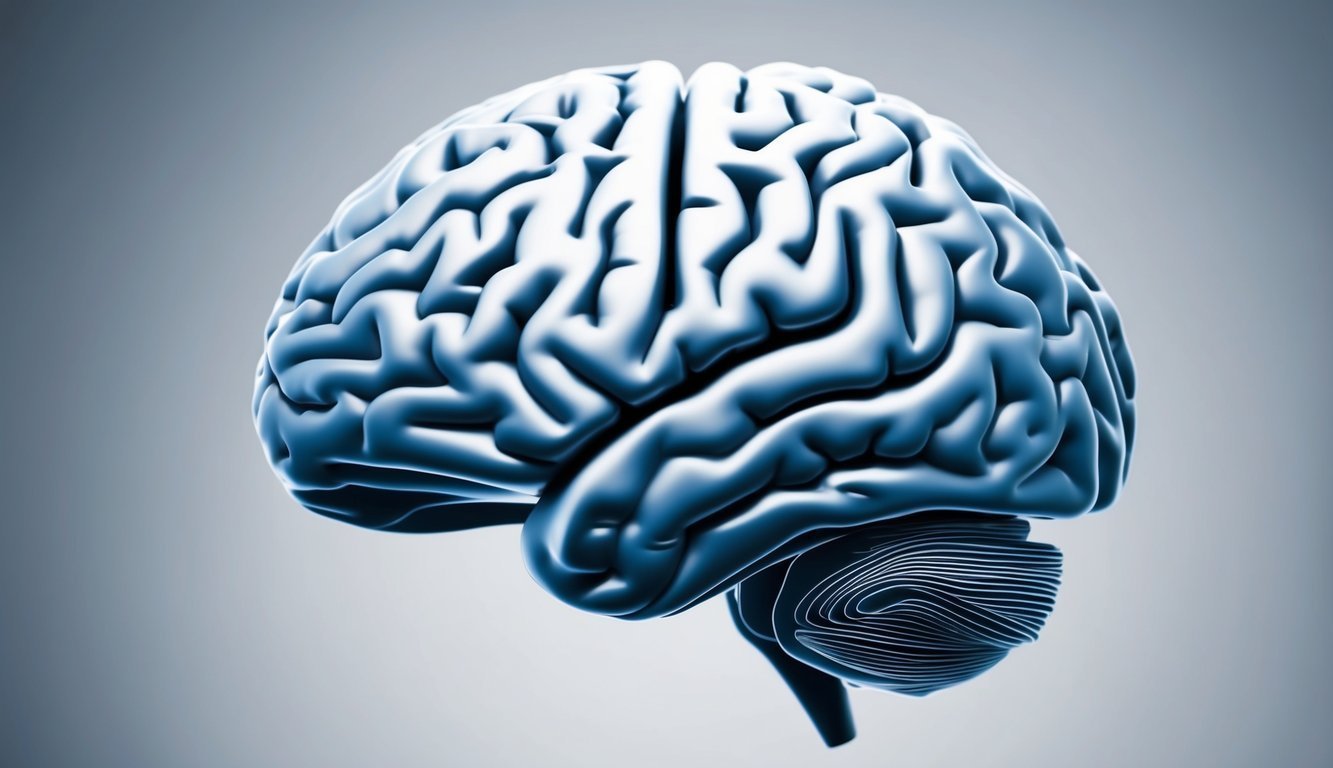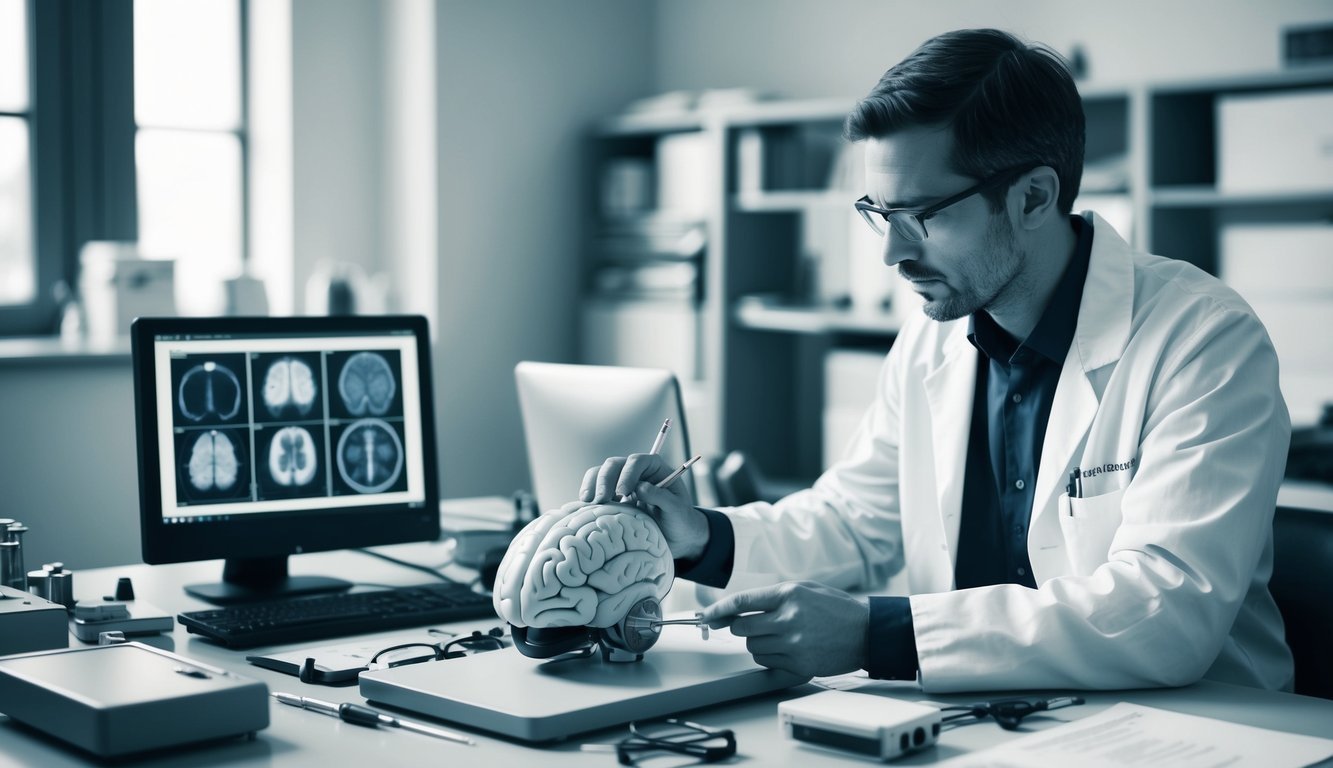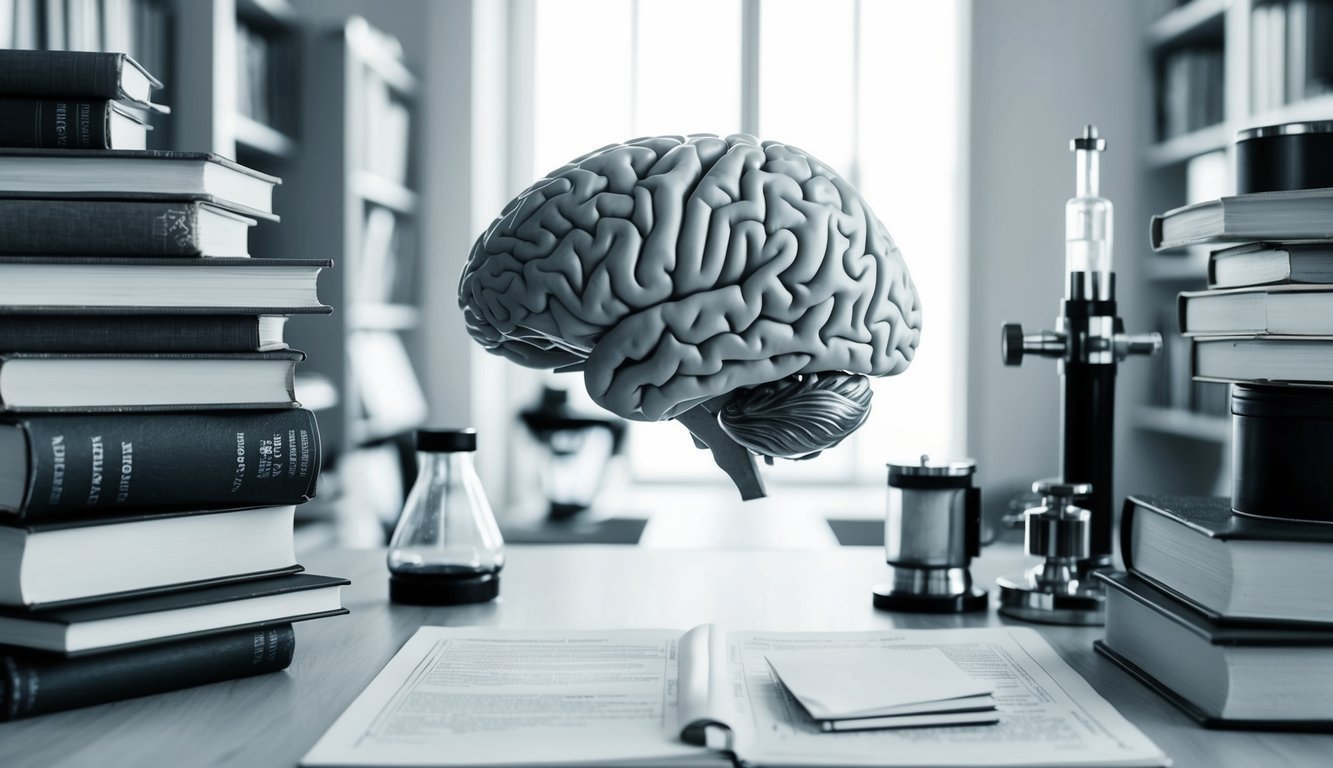PsychNewsDaily Publishers
100 Summit Drive
Burlington, MA, 01803
Telephone: (320) 349-2484
PsychNewsDaily Publishers
100 Summit Drive
Burlington, MA, 01803
Telephone: (320) 349-2484
Neuropsychology connects neurology and psychology, focusing on brain-behavior relationships, cognitive assessments, treatment strategies, and interdisciplinary collaboration for diagnosing neurological disorders and cognitive deficits.

Neuropsychology serves as a vital link between neurology and psychology, exploring the complex interactions between brain function and behavior. This discipline has undergone significant evolution, enhancing our comprehension of cognitive processes and neurological disorders.
The inception of neuropsychology can be traced back to the late 19th century, with influential figures like Paul Broca and Carl Wernicke making pivotal discoveries related to brain localization. Their research set the groundwork for identifying the roles of specific brain regions in language processing.
In the 20th century, pioneers such as Alexander Luria broadened the scope of neuropsychology. Luria’s integrative perspective on brain-behavior dynamics during World War II significantly contributed to the development of contemporary neuropsychological assessment techniques.
The introduction of brain imaging technologies in the 1970s transformed neuropsychology. These advancements enabled real-time observation of brain activity, deepening our understanding of cognitive functions and neurological disorders.
Neuropsychology acts as a vital bridge between neurology and psychology, merging knowledge of brain structure and function with psychological principles regarding behavior and cognition.
This interdisciplinary methodology allows neuropsychologists to evaluate cognitive deficits arising from brain injuries or neurological conditions. They utilize standardized assessments to gauge areas such as memory, attention, language, and executive functions.
Research within neuropsychology enriches both neurology and psychology, guiding neurological treatment approaches while refining psychological models of cognitive processes.
Neuropsychologists are essential in diagnosing and managing cognitive disorders. They perform thorough evaluations to assess cognitive strengths and weaknesses in patients.
Working primarily in healthcare environments, they collaborate with neurologists, psychiatrists, and other experts to contribute to treatment plans and track patient progress over time.
In academic settings, neuropsychologists engage in research to broaden our understanding of brain-behavior connections, playing a key role in developing new assessment tools and treatment methodologies for various neurological and psychiatric issues.

Neuropsychological assessments encompass comprehensive evaluations of cognitive functions, behavior, and mental processes. These evaluations utilize standardized tests and clinical observations to assess brain-behavior relationships.
The goal of neuropsychological assessments is to identify cognitive strengths and weaknesses present in individuals. Various techniques, including interviews, observations, and standardized tests, are employed to evaluate brain function.
These assessments assist in diagnosing neurological disorders, monitoring disease progression, and informing treatment strategies. They are vital in evaluating conditions such as dementia, traumatic brain injury, and learning disabilities.
The assessment process typically spans several sessions, ensuring a comprehensive examination of cognitive abilities. Psychologists may also review medical histories and confer with other healthcare professionals for a well-rounded understanding of the patient’s condition.
Standardized neuropsychological tests offer objective assessments of cognitive functions, measuring various domains such as:
Common examples of standardized tests include:
These assessments help psychologists pinpoint specific cognitive deficits and strengths, playing an essential role in diagnosing conditions such as Alzheimer’s disease, ADHD, and stroke-related impairments.
Expertise in brain-behavior relationships and statistical analysis is crucial for interpreting neuropsychological test results. Psychologists compare individual scores to normative data, accounting for variables like age, education, and cultural background.
The analysis of test results is contextualized by the patient’s history, symptoms, and any relevant information. This thorough approach facilitates accurate diagnoses and targeted treatment suggestions.
Psychologists utilize test outcomes to:
Effectively communicating test findings to patients, family members, and healthcare providers is key to ensuring suitable interventions and support.

Clinical neuropsychology centers on assessing and treating cognitive, behavioral, and emotional changes that arise from brain injuries and diseases. This field merges principles from neuroscience, psychology, and clinical practice to aid patients in recovery or adaptation to neurological challenges.
Clinical neuropsychologists employ specialized assessment strategies to evaluate cognitive functions impacted by brain injuries or diseases. Assessments often include testing memory, attention, language, and executive functions.
The results guide diagnoses, assess the severity of impairments, and inform treatment plans. Neuropsychologists collaborate closely with neurologists, psychiatrists, and other healthcare professionals for comprehensive patient care.
Treatment modalities may encompass cognitive remediation, psychotherapy, and behavioral strategies. The ultimate aim is to enhance cognitive functioning, emotional well-being, and overall quality of life for individuals with neurological conditions.
Cognitive rehabilitation seeks to either restore or accommodate impaired cognitive functions. Strategies are tailored to each patient’s needs and may include:
Neuropsychologists may also use computerized cognitive training programs that provide focused exercises to elevate specific cognitive skills, adaptable based on the patient’s progress and requirements.
Environmental adjustments and compensatory techniques are crucial. Patients are instructed in utilizing calendars, alarms, or mobile applications to manage daily tasks and appointments effectively.
For dementia patients, neuropsychologists concentrate on preserving cognitive functions and managing behavioral symptoms. Interventions may include cognitive stimulation therapy, reminiscence therapy, and behavior management techniques.
In the context of stroke rehabilitation, neuropsychologists address cognitive challenges like aphasia, neglect, or executive dysfunction, working with patients to restore lost skills or craft compensatory strategies.
Both dementia and stroke patients often experience concurrent mood disorders. Neuropsychologists provide counseling and may collaborate with psychiatrists regarding medication management, as necessary.
Educating and supporting families is a key component of care. Neuropsychologists assist families in understanding the patient’s condition and offer strategies for effective caregiving.

Neuropsychology explores the complex relationships between brain structure and cognitive functions, examining how neural systems shape behavior, reasoning, and mental abilities.
The brain’s anatomy significantly impacts cognitive functions, with different regions linked to specific mental processes. For instance, the prefrontal cortex is crucial for executive functions, such as planning and decision-making.
The temporal lobe is essential for memory creation and language understanding, while the parietal lobe supports spatial processing and attention. These structural-functional connections elucidate individual variability in cognitive abilities.
Neuroimaging techniques have dramatically enhanced our understanding of these relationships by allowing real-time observation of brain activity during various cognitive tasks, shedding light on the neural networks that underpin mental processes.
Changes in brain structure or functionality can lead to alterations in behavior and cognition. Neurological disorders, such as stroke or traumatic brain injury, may result in identifiable cognitive deficits.
For example, damage to Broca’s area frequently results in challenges with speech production, while hippocampal lesions can impede memory formation. Neuropsychological assessments are vital for identifying these deficits and informing treatment strategies.
Psychiatric disorders can also entail changes in cognitive capacity. Conditions like depression can affect one’s attention and memory, whereas schizophrenia may distort reasoning and perception. Recognizing these deviations is essential for developing targeted interventions.
Learning and memory, integral cognitive processes, are influenced by various brain regions. The hippocampus plays a crucial role in transferring short-term memories into long-term storage.
Neurotransmitters such as acetylcholine and dopamine modulate the processes of learning and memory, and disruptions in these systems can lead to challenges in learning or memory retention.
Cognitive training programs are designed to bolster learning and memory capacities, frequently focusing on specific cognitive domains like working memory or processing speed. Understanding the neural underpinnings of learning aids in crafting more effective educational approaches and cognitive rehabilitation strategies.

Neuropsychological research combined with case studies offers substantial insights into brain-behavior relationships, advancing our understanding of cognitive functions, neurological disorders, and potential treatments.
Neuropsychological research is rapidly advancing, with new technologies and methodologies deepening our insights into the brain. Cognitive neuropsychology has shifted from focusing on single-case studies to utilizing larger sample sizes and sophisticated statistical analyses.
Integrating neuroimaging technologies like fMRI and PET scans with traditional neuropsychological assessments enhances the precision in correlating brain activity with specific cognitive functions.
Longitudinal studies are becoming increasingly significant, tracking cognitive changes over time in both healthy individuals and those with neurological disorders. This research yields valuable insights into the evolution of disorders and the efficacy of various interventions.
Neuropsychological case studies remain a fundamental aspect of the field, presenting in-depth examinations of distinct cognitive profiles. These studies frequently explore rare conditions or exceptional cases that challenge established theories.
By applying standardized assessments and qualitative observations across different cognitive domains, neuropsychologists can effectively identify specific patient deficits as well as preserved capabilities related to brain injuries or disorders.
Employing advanced analytical techniques, such as lesion mapping and network analysis, enhances the interpretative depth of case study data, thereby facilitating more robust conclusions regarding the localization of cognitive functions within the brain.
Incorporating genetics into neuropsychological research is a burgeoning area of exploration, with researchers examining how genetic variations influence cognitive abilities, brain structure, and predispositions to neurological disorders.
To estimate the heritability of cognitive traits, twin studies and family-based designs are utilized, helping to disentangle the genetic and environmental contributions to neuropsychological functioning.
Genome-wide association studies (GWAS) are identifying specific genes linked to cognitive abilities and neurological conditions. This research may pave the way for more personalized treatment strategies tailored to an individual’s genetic makeup.

The path to becoming a neuropsychologist involves rigorous academic training, specialized clinical experience, and continuous professional development. Aspirants must navigate several educational milestones and fulfill certain licensure prerequisites to work in this discipline.
Prospective neuropsychologists typically begin their journey with a bachelor’s degree in psychology or a related field, providing foundational insights into human behavior, cognition, and research methodologies.
Following undergraduate training, individuals pursuing neuropsychology often earn advanced degrees, typically requiring a doctoral degree in clinical psychology with a focus on neuropsychology.
Graduate education encompasses extensive coursework, research initiatives, and clinical training experiences, equipping students with the competencies necessary for understanding brain-behavior relationships, neuroanatomy, and assessment methodologies.
A robust academic foundation is essential for success in the field of neuropsychology. Key areas of study typically include:
Numerous programs offer specialized tracks in neuropsychology, facilitating focused education on brain function and dysfunction. Students generally complete internships in clinical contexts, gaining practical experience with patients.
Research is a pivotal aspect of neuropsychological education, with many students actively contributing to scholarly publications and presenting their work at professional conferences, enhancing their career prospects.
Practicing as a neuropsychologist necessitates obtaining licensure in one’s state, with typical requirements consisting of:
Additional exams or specialized neuropsychology certifications may be mandated by some states. Once licensed, neuropsychologists engage in ongoing education to keep their credentials valid and stay abreast of developments within the field.
Professional organizations like the American Board of Clinical Neuropsychology offer board certification, which can enhance career opportunities and professional credibility.
Neuropsychology plays a pivotal role in diagnosing and managing diverse cognitive and behavioral disorders. Clinical neuropsychologists work alongside other healthcare professionals to deliver comprehensive care to patients with neurological conditions.
Clinical neuropsychologists implement a variety of strategies to treat and manage neurological disorders. Through detailed assessments, they evaluate cognitive capabilities, including memory, attention, and executive functioning.
These assessments inform the development of tailored treatment plans, with cognitive rehabilitation serving as a critical element aimed at enhancing cognitive faculties affected by brain disorders.
Neuropsychologists also provide psychoeducation to both patients and their families, facilitating an understanding of the condition and effective coping mechanisms. Behavioral interventions may be incorporated to tackle emotional and behavioral challenges related to neurological issues.
Within multidisciplinary care settings, neuropsychologists collaborate with various professionals, including:
This team-oriented approach assures comprehensive patient care. Neuropsychologists lend their expertise in cognitive and behavioral evaluation, informing collaborative treatment decisions made by the group.
They also play an instrumental role in monitoring patient progress and modifying treatment strategies as necessary. Regular team meetings foster information exchange and coordinated care delivery.
In instances of traumatic brain injury (TBI), neuropsychologists evaluate cognitive deficits and devise rehabilitation plans. They are also responsible for tracking recovery progress and aiding patients in resuming daily activities.
Regarding autism, neuropsychological evaluations assist in diagnosis and the formulation of treatment plans, identifying unique cognitive strengths and challenges that inform educational and therapeutic interventions.
Neuropsychologists provide essential support to families of individuals with autism, offering guidance on behavioral management and social skills development, while collaborating with schools and other professionals to ensure ample support and accommodations are available.
“`